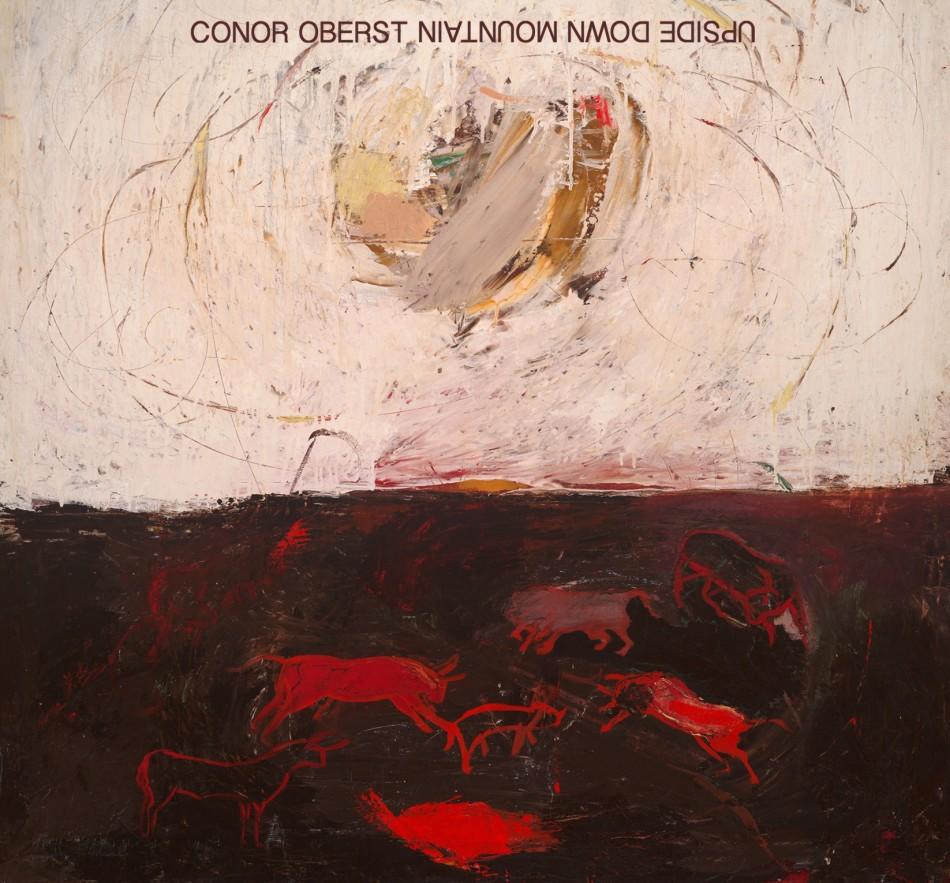Track by Track Review: Conor Oberst, Upside Down Mountain
Image Credit: Nonesuch Records
Conor Oberst, the mastermind behind the illustrious indie act Bright Eyes, hopped off the map for a couple years after the release of One of My Kind, the second album from the restlessly occupied Oberst’s Mystic Valley River Band. If you’re not familiar with the work of Bright Eyes, albums like the charmingly pessimistic Fevers and Mirrors, the sepia stained narrative Lifted Or The Story Is In The Soil, Keep Your Ear To The Ground, the brilliant acoustic I’m Wide Awake, It’s Morning, and the charred, computerized mines on Digital Ash In A Digital Urn each came to be pivotal records in the early 2000s emo outburst while giving Oberst the stamp of a distinguished, prosperous songwriter. His only other fully solo album came out in 2008, and the wise-growing singer-songwriter is back with Upside Down Mountain, an endeavor expressing a new-found inner peace and appreciation for the world around us.
Time Forgot: With a transcendentalist sunrise in his pocket, this ode to time lost and time found has Oberst longing for an introspective life of serenity while offering some wise, edge of the road advice on the side. “I wanna walk in that howling wind ’til it scatters all my thoughts/Sit all alone on that riverbank ’til I forget I can talk”. When the song begins, the instrumentation stands simple with a few chords with an open road bass line, but as the track travels along, an especially arid lap steel intoxicates the chorus with insight along with the help of strumming turned Americana finger-picking. In the middle of the song, we see a dusk to dawn transition that introduces the thematic rhythms of a drum machine, and although Oberst reverts back to the sunny afternoon setting of the song’s beginning, this song succeeds in introducing Upside Down Mountain on the classic and never tiresome morning note nostalgic of The Velvet Underground’s “Sunday Morning” and Bruce Springsteen’s “Thunder Road”.
Zigzagging Towards The Light: This song rides out the success of “Time Forgot” with a charm that strives for much more rock ‘n’ roll but still satisfyingly settles into the insightful folk mainframe of Upside Down Mountain by the choruses.
Hundreds Of Ways: Oberst’s lead single, “Hundreds Of Ways” chimes on an optimistic note while offering a twist of self examination and the compass driven intuition that characterizes this record as a whole. There’s a potent riff that accompanies the verses as well as subtly enveloping, dusty gospel background vocals that introduce the choruses. A terrifically pleasing song aesthetically, this shrewd piece of adventurous chaos succeeds as a single and a standout track on Upside Down Mountain.
Artifact #1: This song opens with a question, along with some vitalizing bongos that are a ‘tad uncomfortable sounding until you get used to them. “If I had tried to make you mine/You would have walked away/You can’t compete with memories/They never have to change,” Oberst sings before proposing an instrumental bridge. Overall, “Artifact #1” loses the charismatic steam of the first three songs, but it stands on its own as an unprecedented addition to the record.
Lonely At The Top: Oberst slows it down to weary points here, while letting the poetry of his lyricism shine through brighter than they have on Upside Down Mountain thus far. Lines like “The heart can’t accompany the panorama”, “There is no dignity in love/Trade every scrap to get some absolution”, “Freedom’s the opposite of love/You’ll never keep it through the paranoia” demonstrate Oberst’s knack for prose-reminiscent lyrics, while especially twangy guitar work spreads itself out throughout the song and steals the show during a thoughtful solo. “‘Til then I’m waiting ’round for no one”, the song closes – Leaving the listener enveloped in the track’s weepy grace.
Enola Gay: This sincere soft-rock track boasts a catalog of inventive instrumentation, making it one of the most enthralling songs on Upside Down Mountain when it comes to production and instrumentation, as climbing piano melodies and Oberst aren’t any lower when it comes to his lyricism. “This world is mean/Getting meaner too/So why do you have to make it all about you”, and “Light your hurricane lamp when the sky goes dark/The wind’s pissed off and the sun’s at large” showcasing Oberst at his most poetic and brash.
Double Life: There’s a whole wealth of gratifying dynamics to appreciate on this song, as we hear Oberst sing a solemnly appreciative ode to moving forward which is reminiscent of older Bright Eyes work while harnessing the charismatic twang and nostalgic background vocals which Upside Down Mountain made its own. One of the most notable songs on the LP, this is sure to be a favorite among fans but inclined to be dismissed by listeners new to Oberst due to its purposeful, graceful lack of thunder and assertiveness.
Kick: Opening with an unexpected new wave riff, this song is packed to the gills with resourceful instrumentation and lyrical charm from Oberst (“Sleeping on the couch with ashes in your mouth/Dreaming that you’re hopping the fence”). Nevertheless, the song occasionally loses the surge of energy that the intro propels into its body – A dynamic leap of confidence that’s rekindled as each of the verses are introduced and in the forceful breakdown.
Night At Lake Unknown: An acoustic ballad at it’s finest, this marvelous low key song spotlights Oberst’s romantic sophistication with a simple arrangement of blooming finger-picking which drives the song straight to the heart. “When I lost myself/I lost you by extension… Your silly dreams aren’t worth a mention/But they keep collecting in my brain”. A glockenspiel even makes an appearance in the bridge, while the ambiance of old analog playback gives the song a flood of heartache and yearning.
You Are Your Mother’s Child: This song continues the reign of easygoing acoustic triumphs on side B of Upside Down Mountain, as it follows the footsteps of “Night At Lake Unknown” while stepping into a sunnier brand of romanticism.
Governor’s Ball: The second song on the double single for “Hundreds Of Ways”, this song is astonishingly lackluster in juxtaposition to Upside Down Mountain‘s other sentimental hymns, although the savory horns in the chorus and the explosion of exciting instrumentation close the track on a high note.
Desert Island Questionnaire: A flowery transition from a strummed out, slow-dance of a song to a seducing breed of rock contributes the deluge of passion this song needs, when Oberst’s lyrics resemble a strung out, untidy rambling of that fails to engage the listener in it’s questioning ‘carpe diem’ moral.
Common Knowledge: Typical of Oberst, “Common Knowledge” splendidly closes Upside Down Mountain on a slow, momentous note similar to Cassadaga‘s “Lime Tree” and “Milk Thistle off Oberst’s self titled. “Washed up bitter/Broke and busted/Back stabbed everyone he trusted/Says he sees what no one else can see/And if I had half his guts I’d wanted to chase that fatalistic comet/And die young in the dark that’s poetry”, sings one of the most enchanting phrases on the entire LP.
Upside Down Mountain, despite a few minor missteps, is an enchanting edition to Conor Oberst’s prosperous discography and cannot be missed. The perfect soundtrack to your round of summer road trips or an introspective reflection into the simpler side of things, this is one of the most crowned and delightful releases of 2014.
Grade: A
Listen to: “Night At Lake Unknown” and “Time Forgot”
You can stream Upside Down Mountain on NPR First Listen now, and be sure to check it out when it drops everywhere through Nonesuch Records May 20!
This LP is superb, which means it earns the approval of Zack the Gecko, the world’s second in line most renowned musical connoisseur.
































